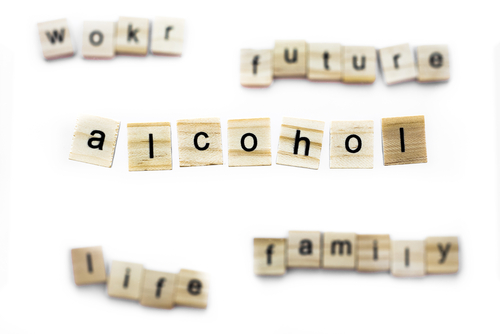For centuries, there was no solution to the problem of alcoholism. Medical and psychological professionals alike were confounded by the persistent obsession of alcoholics and alcohol. In the late 1930s as America was attempting to recover from the Great Depression, a man named Bill Wilson was trying to recover from alcoholism. Bill had tried, numerous times, to stay sober, but to no avail. A dear friend and reformed drinking buddy paid a visit to Bill offering him a set of six steps to aid in his recovery. Admitted to the hospital, Bill found himself in a position many alcoholic men did at the time. His doctor told him another spree of alcohol abuse would render his brain useless, his liver defunct, and death was creeping closer. Bill followed his friend’s steps and had what he called a ‘spiritual experience’.
Six months later, Bill was still sober and reintegrated into life, but he was having intense cravings for alcohol. On intuition, he sought to find another alcoholic, knowing only such a man could understand. By destiny or fate, he met Dr. Bob Smith and they spent the night talking. Dr. Bob quickly set forth on the same six steps that helped Bill. The two realized they found a winning combination: taking the steps and talking with another alcoholic. Alcoholics Anonymous was formed shortly thereafter. In 1939, Alcoholics Anonymous, more affectionately regarded as “The Big Book” was published with an expanded 12-step program.
Since it’s inception, millions have found success through the twelve steps. Over 90% of treatment facilities include programs based on the 12-steps, their principles, and the structure they provide.
A plentitude of ideologies come with the 12-step program which tell you that “it works if you work it” and “if you don’t, it won’t”. The 12-steps work- but not for everyone. With religious undertones, mention of a “Higher Power”, and emphasis on spiritual discovery, the tenets of the 12-step program aren’t agreeable for everyone. Thankfully, there are many other recovery programs which offer literature, meetings, and systems for support. Alcoholics Anonymous is one of the most widespread and popular programs but it is not the only way to get and stay sober.
If Alcoholics Anonymous is not for you, do not fall into the dangerous mindset that you are doomed to a life of chronic relapse because of it. Viable alternatives include programs such as:
- SMART Recovery: based on self-empowerment and self-help principles as well as scientifically based recovery methods
- LifeRing Recovery: Secular peer-to-peer support group encouraging abstinence
- Celebrate Recovery: Christian based recovery often offered in church settings
- Refuge Recovery: Buddhist inspired recovery focused on meditation and reflection
Ultimately these varying programs have a few things in common: a relationship to the disease of addiction, a need for a solution, a program for living, and fellowship for support. Even if you do not relate to Alcoholics Anonymous specifically, most in recovery from alcoholism and/or addiction find that those elements are critical for maintaining sobriety.
At Tree House Recovery, we’re helping men find freedom from addiction. Our treatment programs create sustainable change for sustainable recovery by helping men find their strength in body, mind, and spirit. For information on our Orange County programs, call us today: (855) 202-2138






